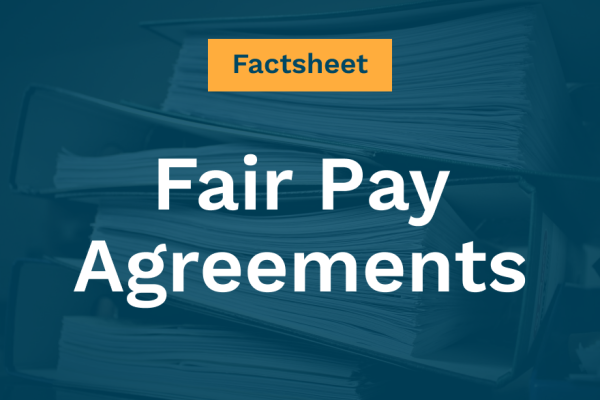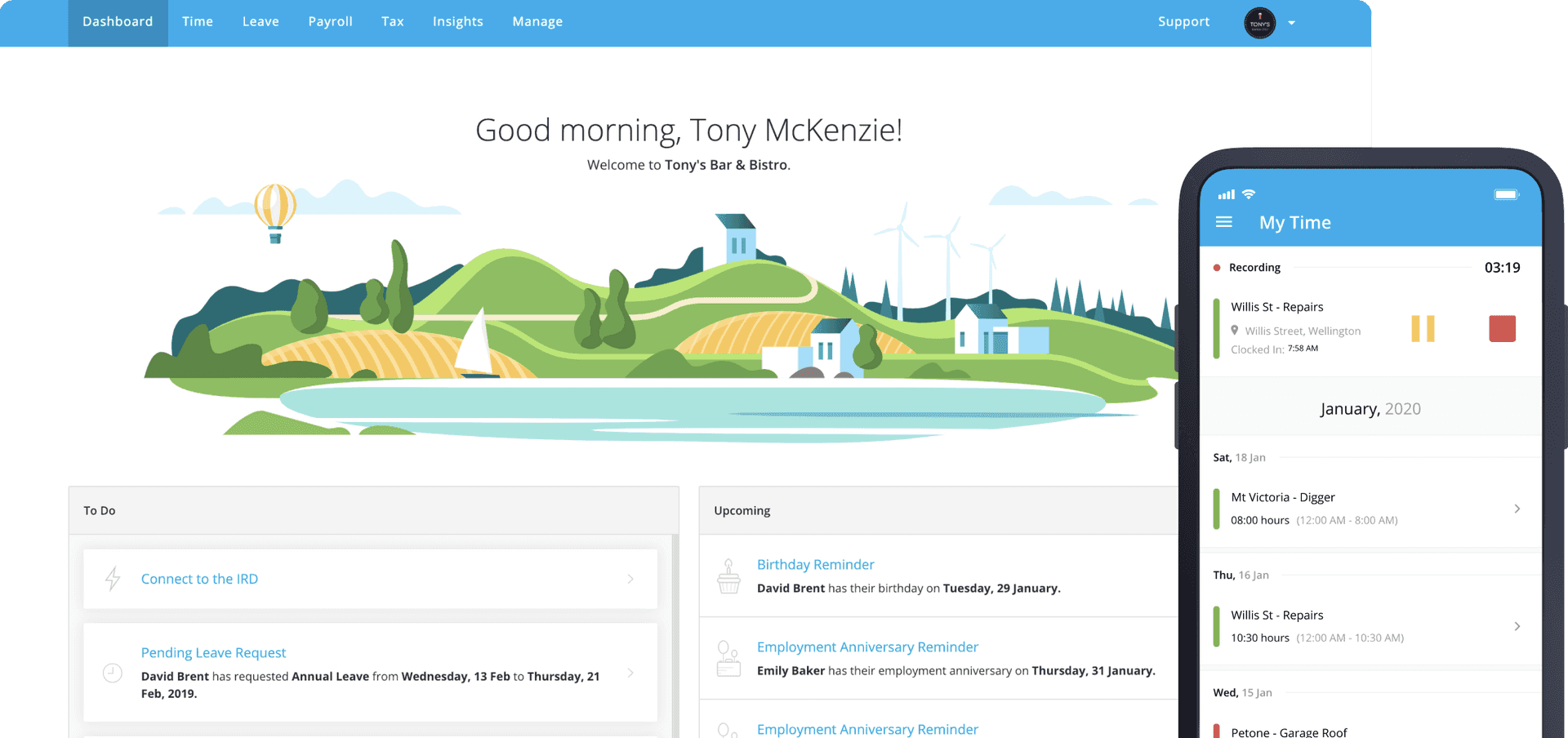Payroll & Finance
FACTSHEET: Fair Pay Agreements - what will they mean for payroll managers?
July 15, 2021
May’s government announcement on Fair Pay Agreements (FPAs) has set many workplace management commentators into a spin.
Strong opinions on either side of the debate are making themselves heard, and the process itself is likely to be a popcorn-grabbing, settle-in-to-watch type of affair.
But it’s going to take some time, and however things shake down in the long run, the smart money for payroll compliance right now is to tidy up existing workforce compliance, and be ready for whatever comes down the pipe.
Q: What is a Fair Pay Agreement?
FPAs are a proposed government initiative involving a process of bargaining between two parties- employers and workers (or their representatives)- to achieve an agreement around various pay rates and working conditions. The agreements will become a legally binding set of rules for a particular sector of the workforce.
The initiation of the process requires a minimum number of employees in a sector to agree to it, and there will be a voting process at the conclusion of the bargaining period, with a majority vote achieving ratification, or a failed vote leading to a re-bargaining period.
The Employment Relations Authority will step in if a second vote fails. Once enacted the FPA will apply to all employees within the sector. If an employee has an overlap of two FPAs, the one which makes the employee better off is the one that applies.
Q: Why are Fair Pay Agreements being introduced?
A: The government says that while the economy has grown over the last 30 years, wages have lagged behind, with the highest income earners watching their wages increase at twice the rate of middle-income earners.
In the short term it’s hoped FPAs will increase bargaining power for employees; ensure minimum pay and employment terms are reflective of the needs of any sector, create an environment where businesses compete by offering better products and services rather than driving down wages or conditions, incentivise training and innovation and create sector-wide coordination.
In the long run it’s hoped Fair Pay Agreements will boost living standards for employees while sharing the benefits of increased productivity, improving economic output and establishing better dialogue between employers and workers.
Q: How do Fair Pay Agreements work?
A: Any union or group in a given workplace sector will be able to initiate a Fair Pay Agreement, once the legislation is finalised.
Firstly the type of work covered must be determined, and then the representation threshold of support from 10% or 1000 workers must be met. There is also a provision for qualifying for an FPA via a public interest test, but the details are yet to be finalised.
The union represents the employees, while employers will choose representatives who meet certain requirements, and the two sides set to bargaining. Training will be given to both sides, and a government-appointed bargaining person appointed.
Government funding of up to $50,000 per side will also be available, and there are several resolutions available if parties cannot agree.
Q: When is this all going to happen?
A: The legislative process is set to begin towards the end of 2021, and could take up to 6 months to finalise.
Beyond that, the government has allowed for a number of bargaining rounds, so while some sectors will no doubt be quicker off the mark than others, because there’s no way to predict how long the FPA negotiations will take, it’s impossible to say when your payroll team (and payroll system) will need to be ready for Fair Pay Agreements.
What is certain is that the new Fair Pay Agreements will make your payroll compliance even more complicated, so getting any issues sorted out now will be the key to a successful transition.
Q: Which businesses will be affected?
A: Instead of the industry definitions we are perhaps more used to seeing in the labour space, such as the hospitality, corporate or retail sectors, FPAs are going to apply to specific types of job categories.
This means a business may end up being covered by multiple agreements. For example, a retailer may be covered by separate FPAs for their floor staff, warehousing and distribution workers, and office employees.
Each agreement will carry separate rules for pay and other conditions, and each will require compulsory compliance.
Q: Will my business be affected?
A: While the process of setting up and finalising FPAs is going to be fairly lengthy and there will be plenty of time for you to get your head around each one, it’s important to note the potential complexity looming ahead.
Many businesses are likely to be covered by at least one FPA, with the potential to be covered by many, depending on your operation.
The voracity of existing unions within the sectors of workers you employ could be a good indicator of which agreements you might be covered by, and how quickly they’ll come online.
Q: What are my payroll obligations under the new Fair Pay Agreements?
A: The agreements will include base wage rates, ordinary hours, overtime and penalty rates. Redundancy, leave, and health and safety must be also discussed but are not mandatory inclusions in the agreement, and other employment terms may also be included, as long as both sides agree.
Employees and employers will still be able to negotiate rates of pay above the agreed minimum, but employers will not legally be permitted to pay less than the standard rate as per the FPA. Payroll obligations under the new FPAs are likely to be complex and varied.
Q: What should I do to tidy up my payroll compliance?
A: It’s a big year for the industrial relations and employment workforce sectors. In addition to FPAs, the government has announced a range of proposed changes to the Holidays Act.
Right now, the best thing to ensure payroll compliance is to meet all your obligations under the current law.






